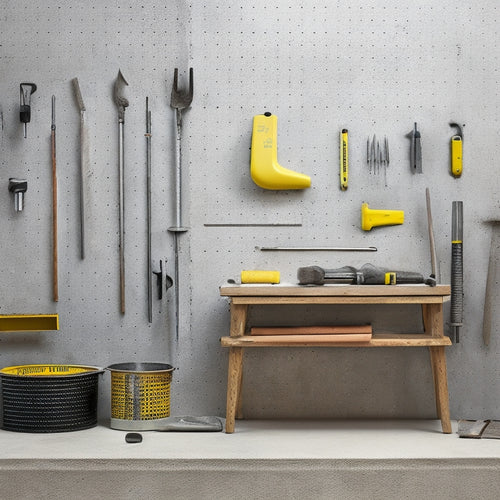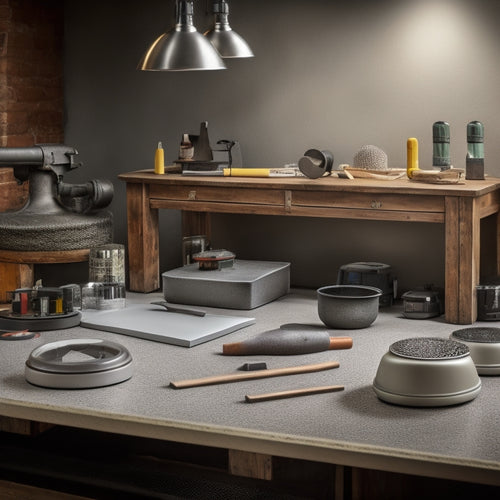
Hand Tools vs. Machine Tools
Share
Hand Tools vs. Machine Tools: Unraveling the Differences
As a fervent advocate for precision and efficiency in craftsmanship, I've meticulously explored the nuances of hand tools and machine tools. Embark on this captivating journey with me as we unravel the intricate differences between these two tool categories.Understanding Hand Tools
Hand tools, the venerable workhorses of manual labor, empower artisans with direct control over their craft. From nimble screwdrivers to hefty hammers, each tool serves a specific purpose, demanding physical exertion and skilled hands to wield.Advantages of Hand Tools
* **Precise Control:** Artisans wield hand tools with utmost precision, shaping materials with finesse and accuracy. * **Portability:** Hand tools are highly portable, allowing craftsmen to work in diverse settings without the need for bulky equipment. * **Affordability:** Compared to machine tools, hand tools are generally more affordable, making them accessible to hobbyists and small businesses alike.Disadvantages of Hand Tools
* **Limited Power:** Hand tools rely on human strength, limiting their ability to handle tough materials or large-scale projects. * **Time-Consuming:** Using hand tools can be time-consuming, especially for repetitive tasks or intricate details. * **Physical Strain:** Extended use of hand tools can lead to physical strain or injuries.Deciphering Machine Tools
Machine tools, the technologically advanced counterparts of hand tools, leverage motorized power and automated processes to transform materials. From lathes to milling machines, these tools offer unparalleled accuracy, efficiency, and productivity.Advantages of Machine Tools
* **Enhanced Power:** Machine tools harness electrical or hydraulic power, enabling them to tackle materials that would otherwise be intractable for hand tools. * **High Precision:** Computerized controls and automated processes ensure exceptional precision, producing parts with consistent dimensions and tolerances. * **Increased Productivity:** Machine tools automate repetitive tasks, significantly reducing production time and boosting output.Disadvantages of Machine Tools
* **Higher Costs:** Machine tools typically involve substantial upfront investments, making them less accessible for smaller operations. * **Limited Flexibility:** Machine tools are best suited for high-volume, standardized production, while custom or intricate work may require hand tools. * **Maintenance and Training:** Machine tools require regular maintenance and specialized training for operators to ensure optimal performance and safety.Matching Tool to Task: A Discerning Approach
The choice between hand tools and machine tools hinges on the specific requirements of the project. Consider the following factors: * Complexity and Precision: For intricate details or high-precision jobs, hand tools offer greater control. * Material and Volume: Machine tools excel in handling tough materials and large-scale production runs. * Time and Efficiency: Machine tools automate tasks, minimizing production time for repetitive or time-consuming processes. * Budget and Accessibility: Hand tools are more affordable and accessible, while machine tools require substantial investments.Conclusion
In the realm of craftsmanship, hand tools and machine tools coexist as complementary tools, each with its unique strengths and limitations. By understanding their respective advantages and disadvantages, craftsmen can make informed choices to optimize their projects, striking the perfect balance between precision, efficiency, and affordability.Related Posts
-

10 Must-Have Tools for Concrete Repair Organization
You'll need a solid organization system to keep your concrete repair tools and materials within easy reach, protected...
-

7 Best Tools for Concrete Block Construction
You'll need a solid foundation, precise cutting, and seamless finishing to guarantee your concrete block construction...
-

10 Best Tools for Sealed Concrete Finishing Success
When it comes to sealed concrete finishing success, you need a robust arsenal of specialized tools. Start with essent...


